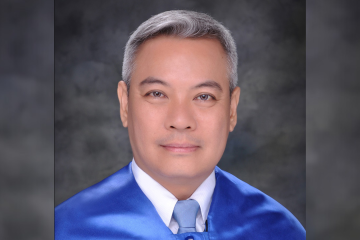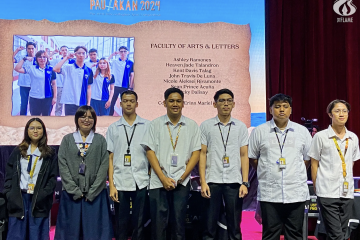by JENNA KAYE PANDANAN and KAREN RENEE S. NOGOY
Gratitude is a very powerful antidote to problems in well-being, said psychology researcher on Thursday in a webinar.
“What we found [in our studies] was that gratitude was associated with better motivation, engagement, and achievement,” said Dr. Ronnel King, a psychology professor at the University of Macau and The Education University of Hong Kong, and co-founder and CEO of Positive Psychology and Education Association, Ltd.
Digital storytelling which allows students to share their positive life stories by using online storytelling platforms like YouTube, Powtoon, and Storybird helps promote gratitude among students, King said.
He furthers that exercises such as “counting blessings” and “tree of blessings” would help students recognize the things that they are grateful for, as well as writing a gratitude card.
“Our lives are so busy […] that we forget the time to pause and just thank people for what they have done to us,” King explained.
The “mental subtraction” activity is an “imaginative exercise” done by thinking about life without a particular blessing will also help promote gratitude, he said.
“It is built on the premise that sometimes, the only time we realize how important something is, is when we lose it,” he added.
King said that finding positive aspects, such as gratitude, is one way to counteract negative feelings like anxiety, fear, and depression.
“Gratitude can help us improve our well-being [while] resilience can help us bounce back from difficulties and adversity,” he added.
Norman Mendoza, co-founder of LifeRisksPH, a non-profit organization that provides seminars on mental health to schools and companies, said that humans are remarkably resilient in the face of crises, traumas, disabilities, attachment, losses, and ongoing adversities.
“Health is foundational to resilience. Without mental and physical health, bouncing back is challenging,” Mendoza said on how to bounce back when struggling mentally.
Mendoza added that people encounter adversity in facing their negative emotions, but they could become resilient by positive coping.
Mendoza defined resilience as “multidimensional,” as people exhibit competence in different domains but not so much in the other, “dynamic” where people could demonstrate resilience at one age and improve growing up, and “multilayered” where the resilience is not psychological or biological construct as it represents the self in interaction in the environment.
He then coined a formula for resilience, that is, patience as its foundation, perseverance by putting effort to achieve resilience, and positivity.
Mendoza said that the first step in building resiliency is self-compassion, followed by emotion regulation–to embrace the emotion as “acceptance has to happen first.”
“Practically to do emotion regulation instead of asking why is this happening to me [….] maybe we could ask our[selves] what opportunities does this present [to] me?” Mendoza explained.
The last step is to set goals and list the behavior beside it to make it more efficient and positive, he added.
Meanwhile, resource speaker Fr. Paul Reagan Talavera O.P., a parish priest in Santisimo Rosario Parish, stressed the importance of spiritual health amid the pandemic.
Dr. Pilar Villanueva of UST Health Service encouraged students to be active and recommended physical activities that can be done at home.
The webinar titled “Building Hope and Gratitude: A Resilience Kit Essential” was spearheaded by the UST Counseling and Career Center in collaboration with the Center for Campus Ministry and the UST Health Service. F



